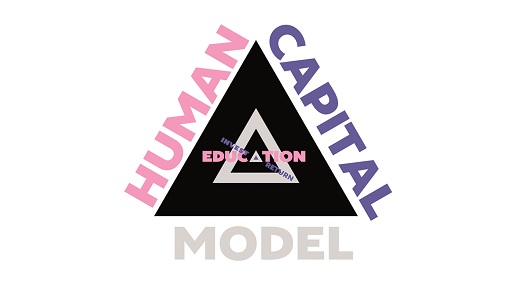3 The human capital model
For the last fifty years, human capital theory has been widely accepted by many societies as the basis for educational policy making, planning and evaluation. Human capital theory is concerned with economic growth and assumes that human labour can be treated as a commodity. An improved education of the workforce is seen as an investment that will lead to economic returns both to the individual and, perhaps more importantly, to society as a whole. Thus increased educational expenditure and increased participation in education are believed to lead to improved economic productivity and economic growth.
Activity 2 Exploring the human capital model
Watch this two-minute animation in which we outline the human capital model for you. It is worth watching the animation two or three times to ensure you have a good understanding of the model so that you can consider its implications for education. You should make notes as you watch, as you will return to reflect further on this model later in the course.

Transcript
Think about:
- What are the important aspects of the human capital model for education?
More about the human capital model
Key global institutions, such as the World Bank, have promoted policies and practices underpinned by the human capital model. It is also associated with the ‘school effectiveness’ movement and international interest in standardised assessment. However, despite its influence over national education systems, increasingly there are criticisms of this approach.
Steven Klees (2016), for example, argues that the approach is fundamentally flawed for a number of reasons:
- earnings do not reflect productivity
- earnings are a poor measure of social benefit
- estimating the empirical effect of education on earnings is almost impossible
- critically, the underlying concept of economic efficiency is unsound.
Klees suggests that the human capital model pays little attention to structural problems and separates efficiency from concerns of equity and social value. The assumption that education causes economic growth and personal prosperity is now being challenged. Some recent data suggest the opposite: that economic growth enables more investment in education (Cobham and Klees, 2016).
